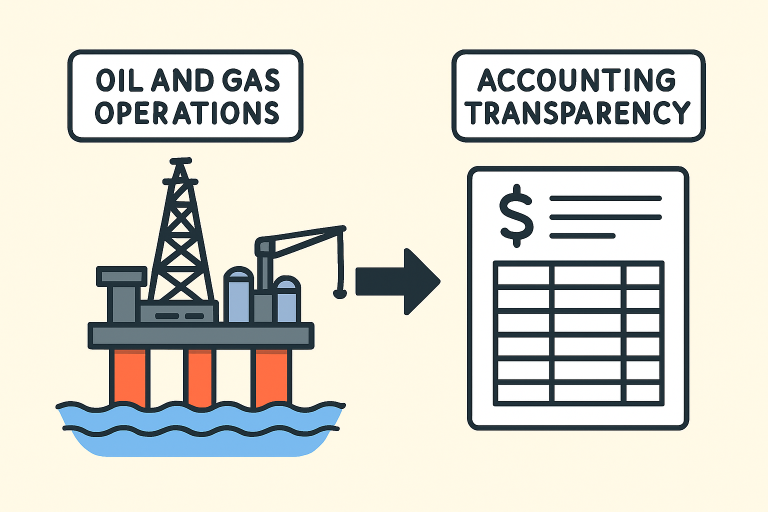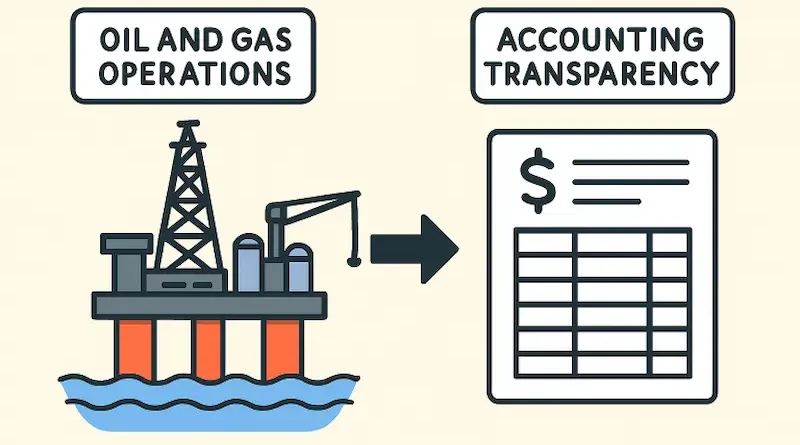How Oil and Gas Accounting Shapes Modern Energy Projects
Key Takeaways:
- Oil and gas accounting is crucial for financial transparency and regulatory compliance in energy projects.
- Accurate accounting practices influence investment decisions and project viability.
- Technological advancements are transforming accounting processes in the energy sector.
The Role of Accounting in Energy Project Development
In the energy sector, robust accounting is the backbone of every successful project. Accurate and thorough financial records create a foundation for decision-making and project planning. For oil and gas ventures, where capital investments are substantial and operational costs are high, maintaining clarity in accounting practices ensures that investors and regulators have confidence in the project’s integrity.
Transparency in accounting supports efficient project management and is critical when seeking external funding. Regulators, auditors, and financial backers expect verifiable data, which proper accounting delivers. Industry-standard organizations, such as Copas.org, provide crucial guidelines and resources that help companies adhere to best practices and industry benchmarks, further strengthening the credibility of the project’s finances.
Accounting also aids energy project managers in identifying financial inefficiencies, managing cash flows, and tracking the return on investment. By maintaining accurate records from inception through completion, stakeholders can better assess the ongoing health and prospects of the project.
Trust is earned not only by meeting regulatory demands but also by providing all parties with financial clarity. This flow of transparent information encourages open communication and supports long-term investor relationships.

Impact on Investment Decisions
The financial landscape of oil and gas projects is inherently complex, with high stakes for all involved parties. Investors depend on detailed, accurate accounting reports to gauge the financial strength of a given project. Reliable accounting data allows stakeholders to comprehensively analyze project risks, potential profits, and return timelines, forming the bedrock for key investment decisions.
Investors scrutinize a project’s historical accounting records, cash flow statements, and projected financials when assessing whether to commit capital. If these documents are inconsistent or incomplete, even lucrative projects can lose out on critical funding. That is why energy companies routinely audit and upgrade their accounting practices, as highlighted in resources from publications like The Wall Street Journal’s Energy Section.
Regulatory Compliance and Risk Management
Compliance is non-negotiable in the energy industry, with stringent regulations governing every aspect of accounting. Oil and gas companies must align financial reporting with government standards such as Generally Accepted Accounting Principles (GAAP) or International Financial Reporting Standards (IFRS), depending on their operational jurisdictions.
Well-managed accounting systems help identify potential financial discrepancies before they become significant risks. Companies proactively reduce exposure to costly legal or regulatory repercussions by carefully tracking liabilities, revenues, and expenditures. Risk management is further strengthened by adherence to guidelines from authorities like the U.S. Securities and Exchange Commission (SEC), protecting projects from fines, lawsuits, and operational shutdowns.
Technological Advancements in Accounting
The rapid adoption of advanced technologies, including artificial intelligence, machine learning, and cloud-based solutions, transforms how oil and gas entities manage their financial data. These technologies automate routine tasks, reduce manual errors, and facilitate the real-time analysis of large-volume datasets, empowering companies to make faster, more informed decisions.
Automation not only increases efficiency but also helps uncover financial patterns and anomalies that may otherwise go unnoticed. As a result, energy companies are better positioned to adapt to volatile market conditions, forecast future trends, and allocate resources more strategically.
Case Study: Offshore Oil and Gas Platforms
The operation of offshore platforms is one of the industry’s most challenging and capital-intensive aspects. Practical accounting is crucial for tracking and managing costs like drilling, maintenance, logistics, and personnel. Integrating accounting with advanced monitoring systems enables real-time tracking of expenditures and resource allocation optimization.
When offshore operators adopt integrated accounting software, they realize substantial savings and performance improvements. This strategic alignment with digital tools enhances operational and financial results, directly impacting the bottom line while ensuring the sustainability of remote projects.
Training and Development in Oil and Gas Accounting
As the market and regulatory environment evolve, ongoing professional development is essential for accountants and finance professionals in the energy sector. Programs such as the International Oil & Gas Accounting Master Class equip professionals with the latest sector trends, compliance updates, and technology deployments.
Organizations that invest in regular training can navigate changes in global standards more effectively, ensuring seamless financial operations and compliance across international borders. Additionally, upskilling staff helps companies build resilience and respond proactively to shifting market demands.
Future Trends in Energy Project Accounting
The global energy sector is rapidly transitioning toward cleaner technologies and new business models such as renewable energy integration and carbon accounting. As the industry adapts, financial models and frameworks will evolve to support innovative projects and sustainability objectives.
Oil and gas companies’ accountants and finance teams must adapt to these trends with agile, forward-thinking approaches. Continued collaboration with standard-setting organizations and leveraging emerging technologies will help ensure accountability and optimize value as energy markets shift.
Conclusion
Oil and gas accounting underpins every phase of modern energy projects, from concept to operation. Transparent practices drive sound investments, facilitate compliance, and harness technological innovations that propel the industry forward. By embracing continuous improvement and adapting to global shifts, the energy sector can ensure financial sustainability and robust project outcomes for the future.
Visit the rest of the site for more interesting and useful articles.

